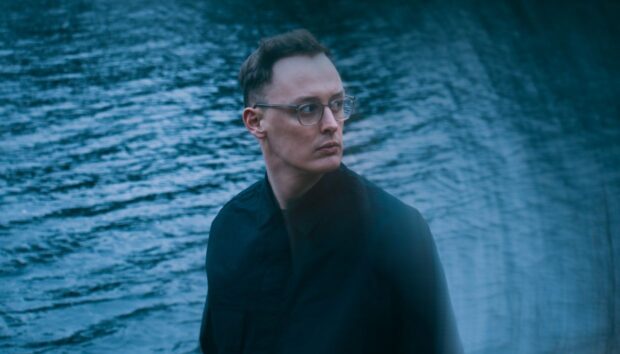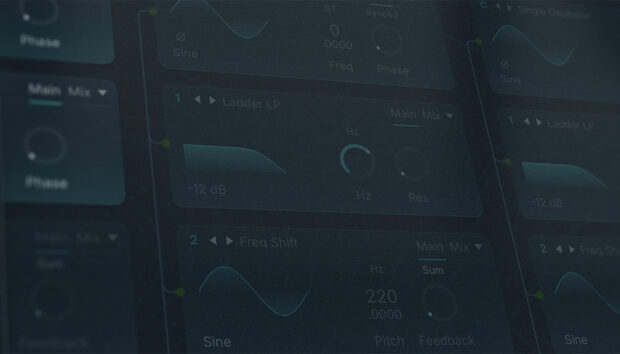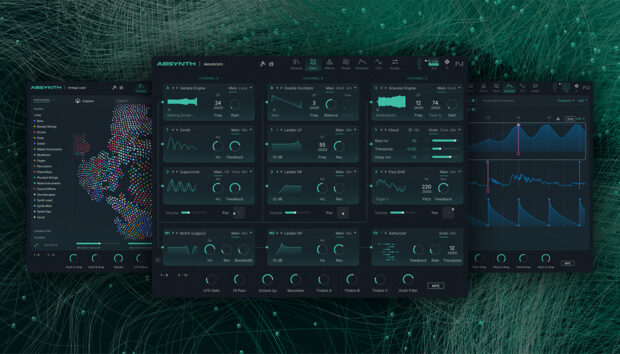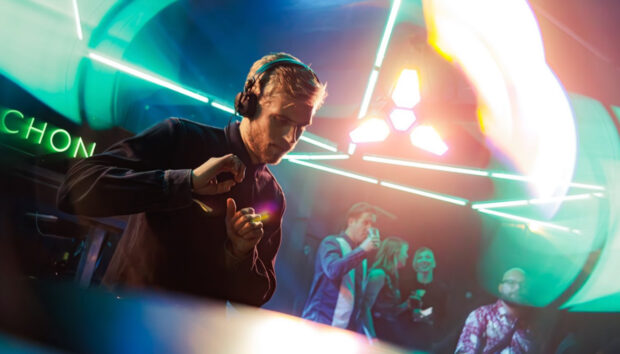Watch Major Seven make an entire beat from scratch using MASCHINE+ – featuring MASSIVE, PRISM, and the built-in Drum Synths – then read on to learn more about his approach to beat-making and pick up some expert advice from a producer at the top of his game.
Rap producer Omar “Major Seven” Walker pulls influence from his Atlanta hometown, but his cinematic, unpredictable productions have a grandeur and musical detail far beyond the sparse and cagey trap loops the city is known for. Inspired at a young age by Kanye West’s emotional soul and gospel sampling on The College Graduate, Dr. Dre’s epic cuts for Eminem, and the inspirational, larger-than-life lyricism of Jay-Z and Tupac, Major Seven set out to produce tracks that told a story. “So many memories and feelings are associated with that music,” he says. “For me, it was about more than just making a beat. It’s just like, how can I capture the emotion?”
The first Major Seven production to get mainstream attention was Rick Ross incendiary late 2013 hit with JAY-Z, “The Devil Is a Lie,” which masterfully flips Gene Williams’ little-known 1970 soul ballad “Don’t Let Your Love Fade Away” atop massive drum rolls, cracking snares and marching band kicks. “I was watching [Quentin Tarantino’s movie] Django Unchained and this song caught my ear from the beginning; the whole entire sample was dope – it had a lot of musical moments and parts with dope oohs and aahs. When it switched up in the bridge it sounded completely different – just that “Buum, buum, buum” [sings three notes] was my shortest moment of inspiration ever. As soon as I heard it, the first people I thought of were 2 Chainz, Rick Ross and JAY-Z and the Western feel, and I tried to capture all that energy in the production. It’s always good to have a vision because a lot of times it plays out the way you initially saw it.”
Walker had already been producing for several years before that track hit big; he estimates he made hundreds, maybe thousands of tracks before cracking the major leagues with “The Devil Is a Lie.” Since then, he’s gone on to craft hits with Future (“Fresh Air,” Neva Missa Lost” and “Selfish” with Rihanna off the HNDRXX album), as well as T-Pain, Dave East, DJ Khaled and DJ Snake. And all throughout, he’s used NI’s MASCHINE and KONTAKT sample libraries to find epic sounds and make devastating loops in record time.
“I use Machine inside of Logic Pro X as a multi-timbral instrument that controls all of my drum programming,” he explains. “Sometimes I want to get in the Maschine software to click things in or just fine-tune what I played. But I like using the hardware to get the live feel of creating music. The Maschine MK3 has a lot of great things built-in, like the note repeat feature and the sampler which allows you to turn the knobs to create the start and end points of the sample. It makes the entire thing a fun, hands-on process. It’s like making music feels you’re literally cooking something. You really cooking up, you know what I’m saying!”
“By default, I’m using the Maschine almost always because I already have my favorite drums already loaded up in there,” he says, explaining his workflow. “This means I can tweak knobs and test out different ideas a lot faster than I would with other gear. One big feature in Native Instruments that I use a lot, especially on drums, is the Transient Master – it helps really fine-tune the attack and the release on certain sounds, like you could make a snare have a stronger attack or make it sound shorter and choppier. I also really like the sampler inside Maschine, but often I use up all of my 16 slots in that first Maschine group so if I hear another sound in another library I want to use I’ll just drag it in using the built-in sampler in Logic. They’ve improved their sampler a lot so I just kind of go between both.”
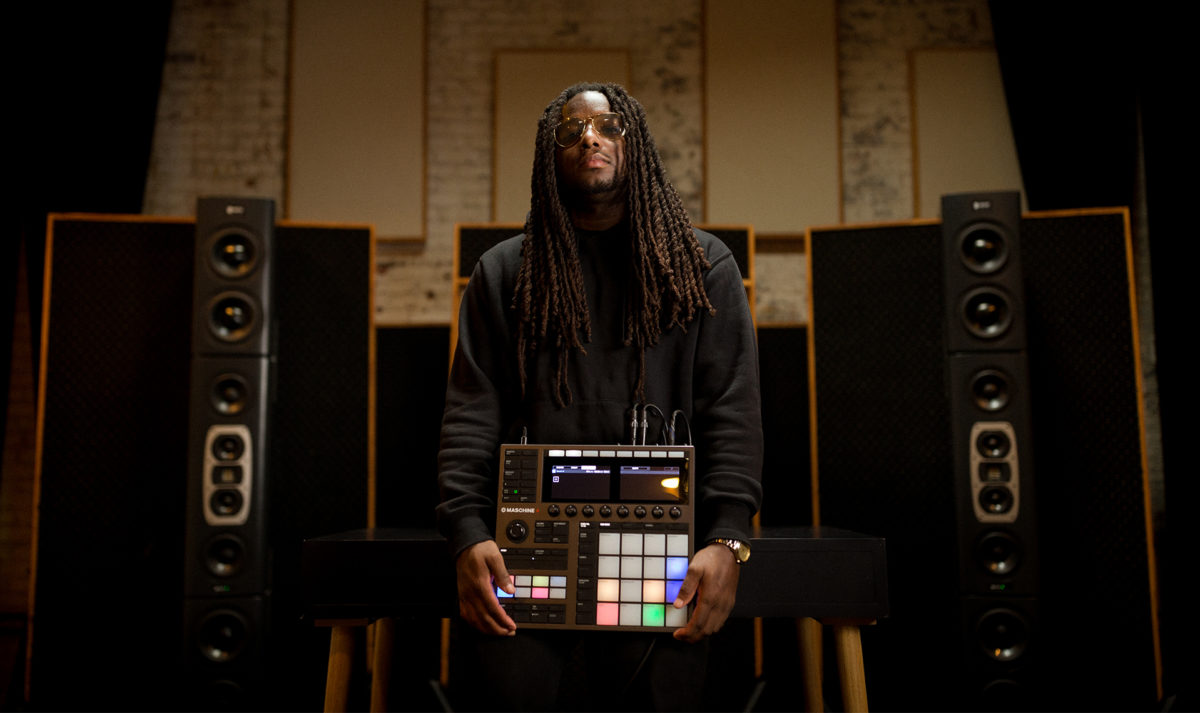
He’s also a fan of pulling melodic elements and stabs from KONTAKT’s more classic-sounding libraries, which he then tweaks and effects. “I use Kontakt’s New York Concert Grand Piano a lot – that’s my go-to piano,” Walker says. “Also the Rhodes in the Scarbee Vintage Keys. And I love that retro ’80s library Analog Dreams.”
It goes without saying that sampling is key to most of Major Seven’s biggest tracks, from the Brazilian baile funk flip on Future’s “Fresh Air” to the piece of Billy Boyo’s iconic stoner anthem “One Spliff A Day” that anchors DJ Khaled’s monstrous reggae-hip hop stormer “Holy Mountain.” “Sampling is literally a part of every record that I do to some degree,” he says. ”There’s so many loops that I’m always chopping up, rearranging and altering, putting effects on them and transforming them into something else. Even when I’m not sampling or chopping up a song, there’s always vocal chops that I try to incorporate, drum samples that I’m always throwing into the sampler.” Even hooks crafted on VST instruments are likely to get bounced to audio, then resampled and re-pitched to fit the mood of the track. “I think sampling is just a part of the art,” confers Walker. “It’s integrated into the art of hip hop itself.”
In our new video, you can watch Major Seven make an entire beat from scratch – no computer necessary – inside the new standalone MASCHINE+. Although it was a new journey for him, he was easily able to navigate the presets and sample menus, whose user design echoes the classic Maschine and Kontakt look and menu organization. “The dope thing about the new Machine+ is that you can just focus on what’s in front of you,” he says. “It was just a fun process – it’s easy to arrange right in the box and it made me tweak macro controls and really get deep inside presets and other things I didn’t even notice before. Just having that different setup inspired me to try doing things in different, more unconventional ways.”
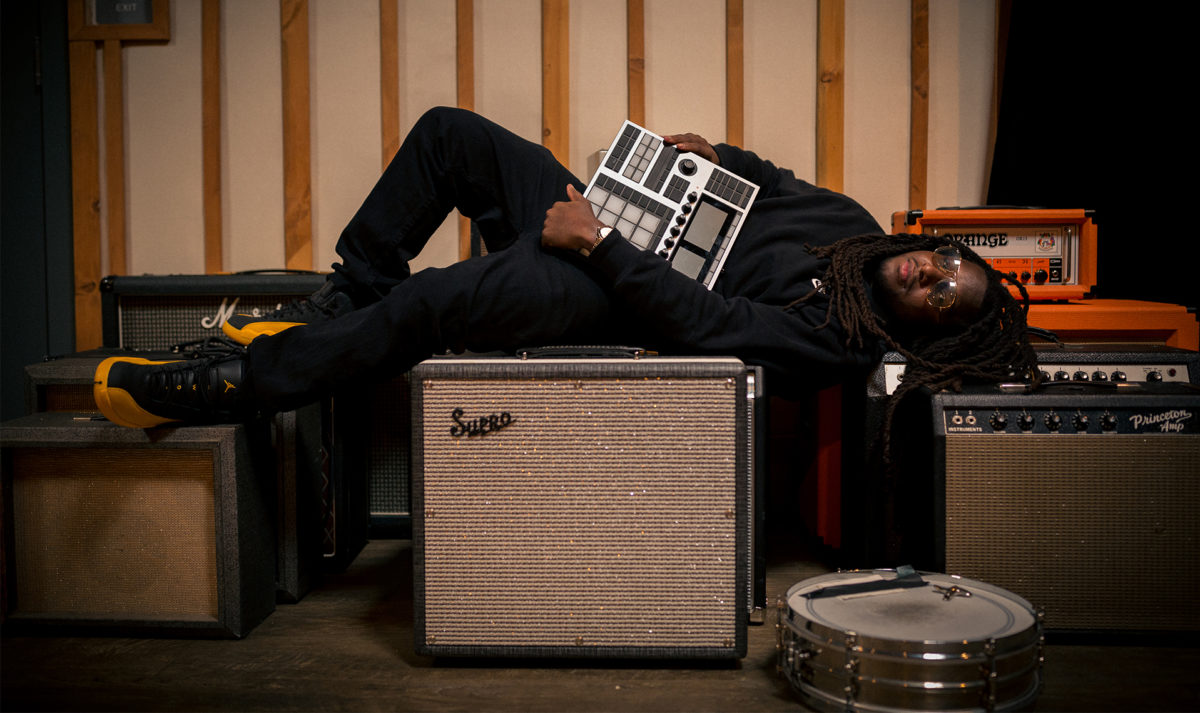
Major Seven’s career has been characterized by the unconventional, from putting Future over R&B-influenced pop ballads to taking hardened Harlem rapper Dave East to a sensual landscape of Jodeci and sliding bass on “Alone.” His tracks tell a story from beginning to end, with lots of delicious ear candy in the details. So what’s his advice on making your productions more cinematic? “To get a big sound, you should focus on arrangement,” he says. “It’s just those little moments in the song… You might spend a long time creating just a small transition, maybe it’s layers of a drum fill with multiple drums with different effects panned a certain way, but it has a big effect. But it all starts with having a big idea or a big vision in the first place! And then having the tools available to you to execute your ideas; it’s always good to invest in yourself, and invest in sounds, software and hardware that can help you focus on your creativity.”
“A lot of times the term producer is used to describe a beatmaker, but to me, it means a person who is able to wear multiple hats in the studio,” he continues. “I personally feel like you should know how to engineer to a certain extent, vocal arrange, make beats, songwriting… As an aspiring producer, I think you should focus on developing all of those skills, especially communication. Being a producer is more than being able to make beats, you have to be a visionary. You have to have an idea of where an artist may want to go or where they could go, and be able to communicate that. And it’s not only about what you like – you have to literally do what’s best for the song. Learn from everybody you meet, learn from everything. Action is the biggest teacher so you just have to actually just get in there and put the hours in. There’s no way around it. You’re going to make mistakes and be slow but learn from your mistakes. Your first 1,000 songs might all be garbage but every time you will get better if you’re intentionally focusing on what you can do better and you’re really listening.”










